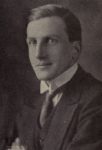Are corporations the problem? Can reforms in the area of corporate responsibility (e.g., more stakeholder governance) lead to any real changes? The goal of the paper is to analyse debates concerning the Citizens United case, corporate personhood, the stakeholder theory, the affected interests principle and, finally, deeper fallacies with respect to the rights of capital embedded in Marxism and conventional economic theories of capital and corporate finance.
Democratic Ownership: Scale Through Leveraged Conversions
One of the problems that cooperatives face is that they do not have a standard gradual conversion mechanism but are generally established as new business startups or by an all-at-once conversion of a conventional company to a cooperative. This paper describes such a conversion mechanism.
Critical Analysis of Different Forms of Employee Ownership
From the 1970’s, there has been almost a half-century of development of employee-owned firms. There has been a wide variety of legal/capital structures that have been tried but too little analysis of which legal forms work or don’t work over the longer term, e.g., the transition from one generation to the next generation of employee-owners. This paper provides a critical analysis of the major forms. The emphasis is the lack of learning between the different forms. The same problems keep recurring even though solutions are known.
The Kantian Person/Thing Principle in Political Economy
This is Chapter 4 in my book: Ellerman, David. 1995. Intellectual Trespassing as a Way of Life: Essays in Philosophy, Economics, and Mathematics. Lanham MD: Rowman & Littlefield.
Ethical theories can be broadly grouped into utilitarian theories and rights-based theories. Modern economics is so thoroughly utilitarian that most economists would be hard-pressed to cite the application of a rights-based argument to economic institutions. Yet the normative principles outlined in the first two chapters, the labor theory of property and the de facto theory of inalienability, are squarely within the rights-based tradition. The democratic principle of self-determination is also a closely allied rights-based theory [see Ellerman 1992].
The Libertarian Case for Slavery (A Spoof on Nozick)
This is Chapter 3 from my book: Ellerman, David. 1995. Intellectual Trespassing as a Way of Life: Essays in Philosophy, Economics, and Mathematics. Lanham MD: Rowman & Littlefield.
Liberalism is living a lie. It pretends that the contract to sell all of one’s labor, the self-enslavement contract, is an invalid contract beyond the pale while the contract to sell one’s labor piecemeal (by the hour, day, month, or year) is a perfectly valid contract above reproach. The self-enslavement contract is one of the skeletons in liberalism’s intellectual closet. Defenders of liberal capitalism are quick to accept even the most superficial arguments against voluntary slavery just to shove the issue back in the closet—just so long as the arguments do not carry over to the current contract to rent oneself out, the employer-employee contract. Who wants to be seen as, in effect, defending voluntary slavery by showing how most arguments against the self-sale contract are baseless (aside from one “J. Philmore”)?
Myth and Metaphor in Orthodox Economics
This is Chapter 2 from: Ellerman, David. 1995. Intellectual Trespassing as a Way of Life: Essays in Philosophy, Economics, and Mathematics. Lanham MD: Rowman & Littlefield.
Discussion of the fundamental questions of political economy is today almost completely clouded and distorted by a number of basic myths and metaphors. Deconstruction is necessary before constructive discussions can begin. The myths and metaphors are concerned with basic conceptions about property and contract, not with prices and markets. As layer upon layer of distortions are removed, new facts and new perspectives on old facts will emerge. These facts have fairly direct normative implications, but the disagreements and controversies are about the facts, not about norms or prescriptions.
Lord Eustace Percy’s “Unknown State” Lecture
Lord Eustace Percy was a Conservative public servant but was better known as a serious thinker, indeed, as the “Minister of Thinking.” There is a remarkable and much-quoted passage in his 1944 Riddell Lecture The Unknown State.
Talk: A Tale of Two Invalid Contracts: Coverture and Employment
These are the slides for a talk that focuses on the parallel inalienable rights arguments against the now-outlawed coverture marriage contract and the yet-to-be-outlawed employment contract.
Labor theory of property and predistribution
This is the online-first publication in Challenge: The Magazine of Economic Affairs of an article on the labor theory of property showing the superficiality of the inequality-debate framing in terms of distribution (i.e., how much is distributed by a firm to labor versus capital) in favor of a framing in terms of what is now called “predistribution”–in this case the question of who is to be the firm in the first place, Capital or Labor.
Reply to Commentators on Labor Theory of Property
My paper on marginal productivity theory and the labor theory of property in the on-line journal Economic Thought drew commentaries for Jamie Morgan and Ted Burczak. After some back and forth on the journal’s discussion forum, this Reply to Commentators paper was published as an article in the journal.




